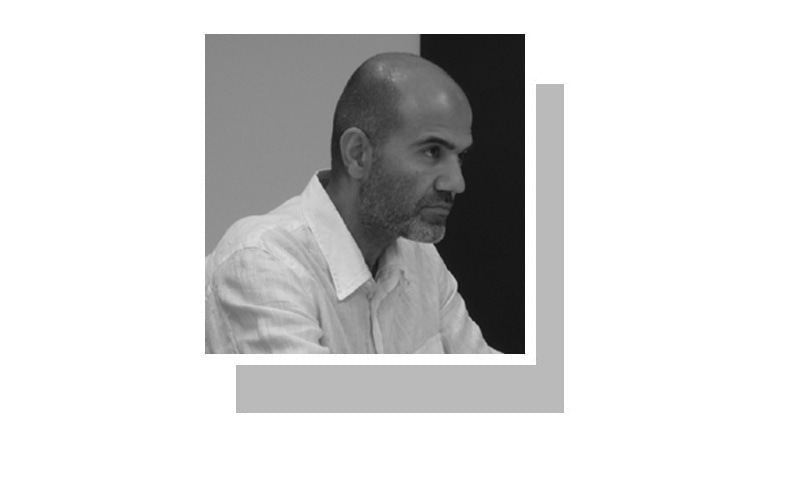PETROL prices have been hiked yet again. Shortages of agricultural inputs which have paralysed small farmers are set to intensify. Unemployment rates amongst youth, particularly the highly educated, are skyrocketing. But in the dark, shady corridors of power, who really cares?
The prime minister insists he is committed to the welfare of the masses, decrying a purportedly biased media for downplaying his government’s successes. Maybe he really believes what he is saying, but the price of petrol really is Rs160 per litre, and this government is almost completely beholden to powerful domestic and foreign financial lobbies.
Beyond the rhetoric, the PM knows that we are at that critical point in Pakistan’s political business cycle where the selectors are considering placing their bets on other horses. How can he forget the role played by the establishment in ushering him to power after his dramatic emergence as a ‘third force’ to challenge the ‘corrupt’ incumbents after the (in)famous Minto Park public meeting in 2011?
A decade later, the usual suspects (PML-N and PPP) are once again staking their claims to a share of the establishment-shaped political cake. Many of the components of the religious right, most notably JUI-F, are also resurgent, having gained a major fillip from the Taliban’s reconquest of Afghanistan.
Things will likely get worse for future generations.
Some find the intrigue exciting — regime ideologues jump ship on an almost daily basis; courts are seen to obstruct government decision-making; and the terrains of TV and social media ensure speculation and sensation reach fever pitch.
But there is nothing exciting about the economic hardships of a growing segment of 230 million people. Or the lynch mobs that weaponise religion. Or the fact that things will likely get worse for future generations of Pakistanis due to our reckless pillaging of nature from the mountainous highlands of Gilgit-Baltistan, to the black skies of our cities, to the devastated marine ecologies of the Sindh and Balochistan coasts.
Will all of this change if and when Imran Khan no longer occupies the office? He has already warned that he will be ‘more dangerous’ when back in the opposition. Whether or not this was a message to his previously unconditional benefactors, it can be read as acknowledgment that Pakistan’s inegalitarian and authoritarian political economy is not about to be overhauled anytime soon.
I do not want to suggest that there is no respite whatsoever. People’s movements continue to swim against the tide. The passing of legislation by the Sindh Assembly restoring student unions represents a welcome commitment by the PPP to long-term processes of democratisation — young people today comprise the majority of Pakistan’s population. But then it is also in Sindh’s jails that MNA Ali Wazir has been wasting away for more than a year, confirming precisely just how much authority elected governments in this country exercise over the national security apparatus.
More generally, the military, judicial and religious establishments, along with mainstream political parties, do not depart from one another on their basic developmental vision ie social and economic policy. Capital accumulation in unproductive sectors like real estate, as well as road-building, construction, and informal trade is unimpeded, all sustained by debt-fuelled conspicuous consumption. Foreign aid keeps the macroeconomy afloat. And the defence of religion ideology of the state provides a permanent mandate for weaponisation of religion and political economy of war.
While the obvious fallouts of this developmental vision are manifested in periods of intense economic hardship — like the one we are currently experiencing — it is important to be cognisant that public goods provision has virtually become an anachronism. Most notably, health and education are increasingly private-sector domains. High-profile hospital and university projects are executed by government from time to time, but the quality of services has declined while class and status privileges are brazenly protected.
As a public university teacher, I can testify to the sheer lack of resources — both financial and intellectual — to cope with the demographic pressures of the youth bulge. Students are completely excluded from decision-making processes. Meanwhile, a recent hospital visit for a minor surgical procedure reminded me that even well-endowed private providers are concerned largely with profit maximisation — many of our private hospitals operate not dissimilarly to the highly dysfunctional and inegalitarian insurance company-dominated health sector in the US.
So it is that Pakistan’s political economy can be described as a dialectic of profiteering and hate. The militarised oligarchies make money, and then sell hate to keep the boat afloat. When the current round of palace intrigues concludes, the current PM may lose, but hate and profit will still win out.
The writer teaches at Quaid-i-Azam University, Islamabad.
Published in Dawn, February 18th, 2022
















































